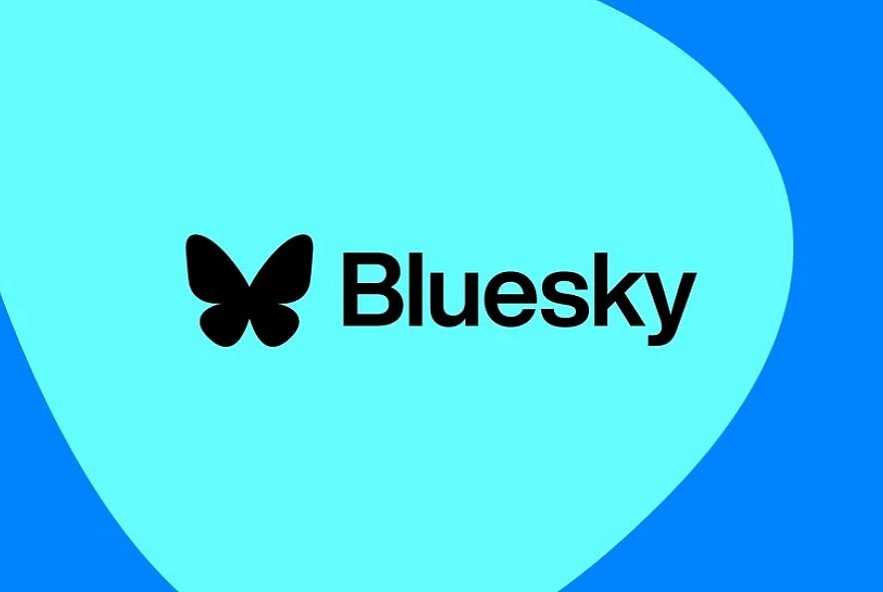Bluesky Under Scrutiny: EU Compliance Challenges for Emerging Social Media Platforms
Bluesky, a decentralized social media platform launched to rival X (formerly Twitter), has gained significant traction in recent months. However, its rapid growth has been marred by regulatory concerns within the European Union (EU). The EU has flagged Bluesky for non-compliance with the Digital Services Act (DSA), a landmark regulation designed to increase transparency and accountability among online platforms.
 |
| Bluesky is breaking the rules in the EU |
The Rise of Bluesky
Bluesky was initially conceptualized as a decentralized alternative to traditional social media platforms. With its promise of user-controlled algorithms and privacy-centric features, Bluesky quickly attracted users dissatisfied with X's management under Elon Musk. By late 2024, Bluesky had amassed over 22 million users globally, positioning itself as a major competitor in the social media space.
The platform’s growth coincided with a surge in interest in decentralized technologies, as users sought platforms that offered greater autonomy and data control. Despite this success, Bluesky’s expansion has brought it under regulatory scrutiny, particularly in the EU, where strict rules govern digital platforms.
EU Regulations and the Digital Services Act
The Digital Services Act (DSA) is a comprehensive regulatory framework aimed at ensuring transparency, accountability, and user safety on online platforms. Key provisions of the DSA include:
• Mandatory disclosure of the number of EU-based users.
• Identification of the platform's legal establishment within the EU.
• Obligations for platforms exceeding 45 million users, classified as "very large online platforms," to provide detailed risk assessments and compliance measures.
Although Bluesky has yet to reach the threshold of 45 million users, it is still required to disclose its EU user numbers and provide details of its legal presence. The EU has raised concerns that Bluesky has failed to comply with these basic requirements, which are crucial for monitoring its activities within the region.
Non-Compliance Allegations
According to the European Commission, Bluesky has not established a dedicated compliance page as required by the DSA. This page would typically contain:
• The number of active users in the EU.
• Information on how the platform plans to adhere to EU regulations.
• Details about its legal representation in the region.
Bluesky's lack of transparency has triggered the EU to initiate inquiries with member states to investigate the platform's operations. Notably, the European Commission has yet to engage directly with Bluesky, opting instead to coordinate with national authorities.
The platform’s decentralized nature has further complicated regulatory oversight. Unlike traditional platforms with clear corporate hierarchies, Bluesky operates on a federated model, making it challenging to pinpoint legal accountability.
Potential Consequences for Bluesky
The EU's response to Bluesky’s non-compliance could have significant implications for the platform. Potential outcomes include:
• Fines and Penalties: Non-compliance with the DSA can result in fines of up to 6% of the platform’s global annual revenue.
• Restrictions: The EU may impose restrictions on Bluesky's operations within its jurisdiction, limiting its ability to reach users in the region.
• Reputational Damage: Being flagged by a major regulatory body could undermine Bluesky's reputation, especially as it positions itself as a user-focused alternative to existing platforms.
Bluesky's situation highlights the challenges emerging platforms face when navigating complex regulatory environments. Compliance with regional laws is no longer optional but a critical component of global expansion strategies.
Broader Implications for Social Media Platforms
The Bluesky case underscores a growing tension between innovation and regulation in the social media industry.
Key takeaways include:
• The Need for Preparedness: Emerging platforms must anticipate regulatory challenges and establish compliance frameworks early in their development.
• Decentralization vs. Accountability: Decentralized models like Bluesky’s offer unique benefits but pose significant challenges for regulatory bodies accustomed to centralized platforms.
• Global Standards: As the EU sets a high bar for digital platform regulations, other regions may follow suit, leading to a more uniform global regulatory landscape.
Bluesky’s situation serves as a wake-up call for the industry. Balancing innovation with compliance will be crucial for the success of new entrants in the social media space.
Conclusion
Bluesky’s rapid growth has positioned it as a key player in the evolving social media landscape. However, its failure to meet EU compliance standards highlights the difficulties new platforms face when operating on a global scale. As the EU intensifies its regulatory efforts, Bluesky must address these challenges promptly to maintain its momentum and credibility. The case also underscores the broader need for emerging platforms to prioritize compliance in their growth strategies.
For the social media industry, the Bluesky case is a reminder that innovation must go hand in hand with accountability. Platforms seeking to scale internationally must navigate complex regulatory environments while staying true to their core principles.
FAQs
1. What is Bluesky, and why is it under scrutiny?
Bluesky is a decentralized social media platform designed to provide users with greater control over their data and algorithms. The EU has flagged Bluesky for failing to comply with the Digital Services Act, particularly its requirements for transparency and user disclosure.
2. What are the key provisions of the EU's Digital Services Act (DSA)?
The DSA requires online platforms to disclose their number of EU users, establish a legal presence in the region, and, for very large platforms, conduct risk assessments and ensure compliance with specific safety measures.
3. How many users does Bluesky currently have?
Bluesky’s global user base is approximately 22 million, placing it below the DSA's threshold for "very large online platforms" but still subject to basic compliance requirements.
4. What are the potential penalties for non-compliance with the DSA?
Platforms that fail to comply with the DSA may face fines of up to 6% of their global annual revenue and restrictions on their operations within the EU.
5. What does this case mean for other emerging social media platforms?
The Bluesky case highlights the importance of early regulatory compliance for new platforms. It also underscores the challenges of balancing innovation with accountability in a rapidly evolving digital landscape.
 Who is Jay Graber (Bluesky): Bio, Education, Personal Life, Career, and Net Worth Who is Jay Graber (Bluesky): Bio, Education, Personal Life, Career, and Net Worth Jay Graber, the CEO of Bluesky, has become a trailblazer in the world of decentralized social networking. This article explores the story behind Bluesky, its ... |
 Using Bluesky: A Beginner's Guide to Decentralized Social Media Using Bluesky: A Beginner's Guide to Decentralized Social Media Bluesky is a decentralized social media platform that will change online communication. Based on AT Protocol, Bluesky prioritizes user control, interoperability, and privacy. Beginners can ... |
 How to Get Started with Bluesky: Post, Troll, Find Friends , and Common Issues How to Get Started with Bluesky: Post, Troll, Find Friends , and Common Issues Bluesky is the next-generation decentralized social media platform that gives users control over their data, identities, and content. It's a unique Twitter alternative based on ... |


























